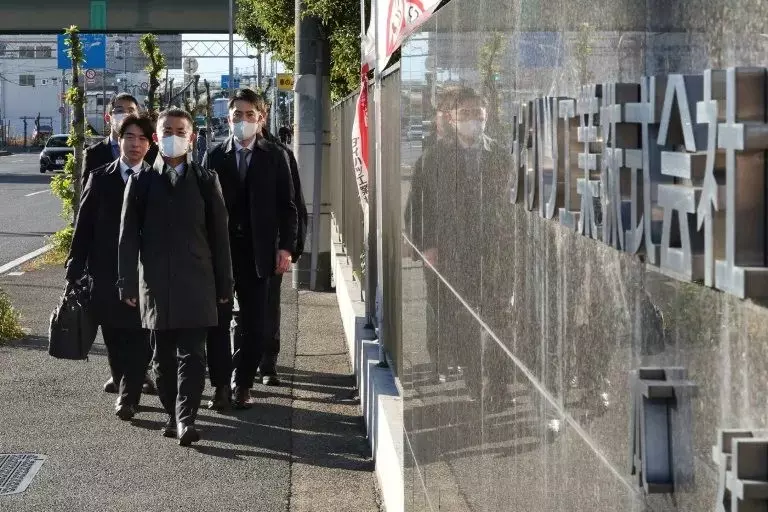The Japanese Ministry of Land, Infrastructure, Transport and Tourism conducted a raid on the headquarters of Daihatsu Motor on Thursday morning, which is embroiled in a scandal.
The Ministry of Land, Infrastructure, Transport, and Tourism is seeking to clarify how wrongdoing occurred in Daihatsu’s product testing process. This action was taken after the safety and testing fraud issues of the Daihatsu brand were exposed by an independent investigation.

The Japanese Ministry of Land, Infrastructure, Transport and Tourism conducted a raid on the headquarters of Daihatsu Motor on Thursday morning, which is embroiled in a scandal.
The Ministry also plans to take administrative actions, including revoking certificates for certain car models if these irregularities are found to be deliberate.
A report by an independent council released by Daihatsu on Wednesday revealed that misconduct has taken place over more than three decades since 1989. The council found additional examples of irregularities in 25 vehicle safety and emission tests. In total, 174 cases were uncovered, affecting 28 car models currently being produced and developed in Japan.
The Ministry of Land, Infrastructure, Transport, and Tourism decided to investigate how Daihatsu’s misconduct developed after suspicions arose that inappropriate testing activities may have been widespread within the company. Officials have decided to conduct on-site investigations under the Road Transport Vehicle Act. The law stipulates that the government can conduct on-site inspections of licensed automobile manufacturers.
Automobile manufacturers are required to have model certification before being able to mass-produce and sell specific car models and components in Japan. Certification is granted after the model passes the screening process of the Ministry of Land, Infrastructure, Transport, and Tourism to determine if it meets safety requirements.
The 2017 amendment to the Road Transport Vehicle Act empowered the government to revoke model certifications if the certification was improperly issued. This provision was first applied in March 2022, when certification for engines used in Hino Motors’ vehicles was revoked after falsification was discovered in the Japanese automaker’s emission and fuel efficiency data.
The report by the independent council classified 174 examples of misconduct into three categories: improper handling or adjustment, falsification of records, and falsification of original data. It determined that all irregularities were intentional.
In the case of falsification of records, crash test results on the passenger side were recorded and used for the driver’s side. The person in charge of the test stated that there was not enough time to perform the driver’s side test, so the testers chose to manipulate the records because they believed “There is no significant difference in performance,” the report said.
With on-site inspections, the Ministry of Land, Infrastructure, Transport, and Tourism aims to find evidence for the cited cases of misconduct by analyzing relevant test documents and interviewing those involved.
It also aims to investigate the involvement of managers and unravel the reasons that made the irregularities widespread and persistent.
A Daihatsu spokesperson said on Thursday, “We are well aware of the fact that we have betrayed the trust of our customers.” “We are ready to fully cooperate with the investigation by the Ministry of Land, Infrastructure, Transport, and Tourism.”
The Ministry also plans to conduct independent verification of the safety and environmental impact of the 28 Daihatsu car models currently on sale or under development, in order to ensure compliance with standards.
The Ministry’s inspection is expected to be of a particularly large scale and is anticipated to take a significant amount of time. This makes it difficult for Daihatsu to estimate when it can return to pre-scandal production levels.












































